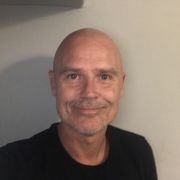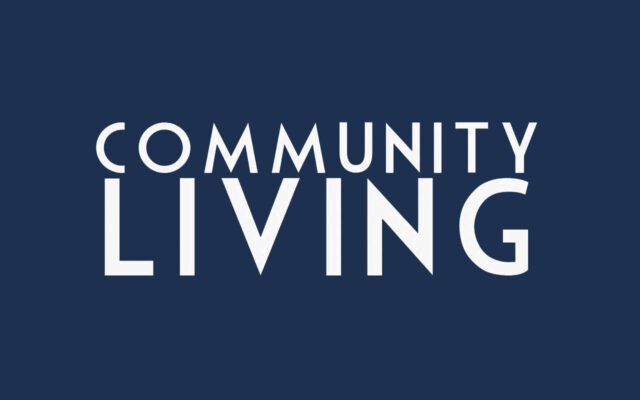What happened to the ‘Big Society’ for people with learning disabilities?
Not surprisingly, the researchers found that the ‘Big Society’ had not emerged to help people with learning disabilities who are facing major changes to their lives from cuts to services and support. The research demonstrated, however, that people can live well when they are supported effectively. Report by Dan Goodley and Katherine Runswick-Cole
SUMMARY
Title: Big Society? Disabled People with Learning Disabilities and Civil Society (www.bigsocietydis.wordpress.com )
Aims: The aim of this project was to explore the lives of people with learning disabilities in a time of austerity and to ask how they are faring during cuts to public and statutory services.
Methods: A qualitative study involved university and community partners working alongside people with learning disabilities to explore their experiences of self-advocacy, employment and community inclusion. We talked to eleven key stakeholders (people with learning disabilities, family members, activists and other allies) to start to make sense of how the Big Society agenda was affecting people’s lives.
Next, we spent time with a self-advocacy group, interviewed five people with learning disabilities looking for work, and attended circles of support for five people. We also aimed to ‘give something back’ to the partner organisations so we worked together to develop presentations and workshops as well as developing future research ideas.
Background
In 2012, a group of people with learning disabilities, activists, academics and family members got together because we were all concerned about what the Coalition Government’s ‘Big Society’ agenda would mean for people with learning disabilities. As readers may remember, this set out the government’s aim to shrink the role of the state in the belief that communities would step forward and do more. We wondered how people with learning disabilities were being included (or not) in Big Society. We knew that they were already among the most disadvantaged people in the UK and we wanted to know how this policy shift would impact on their everyday lives. The project ran from July 2013 to August 2015.
Findings
Our findings reflect the three strands of the project: self-advocacy, employment and circles of support.
Self-advocacy
“Being a self-advocate has made me more confident in new things. I have more friends than I had at school and college. Since I came to a self advocacy group, I have done things that I have never dreamed of doing like being an inspector for the Care Quality Commission and being a representative/trainer for different projects”.
Jodie, self-advocate and co-researcher
We found that, in a time of the ‘Big Society’, the number of self-advocacy organisations for people with learning disabilities is clearly steadily declining. Despite attempts by groups to expand to include training and support services as well as offering traditional self-advocacy work, resources for such groups are shrinking. Fewer people with learning disabilities are qualifying for statutory support, while more people than ever are being referred to voluntary-funded self-advocacy services. This means that while demand increases, the resources for self-advocacy are dwindling. We spoke to people with learning disabilities who were concerned about the impact of the Care Act 2014 as thresholds for accessing statutory services rise and local authorities block commission generic advocacy services preventing self-advocacy organisations from being awarded advocacy contracts. This led us to question the future of self-advocacy in the UK and whether it might disappear altogether.
Employment
We know that many people with learning disabilities can work and want to work but they continue to face barriers to work. Henry and Kerry, two young people in the project were offered little support to move into employment. Henry left education and lost his Education, Health and Care Plan as a result.
We found indications that people with learning disabilities rarely use a personal budget to explore employment. While the role of support workers and job coaches are crucial to finding employment, support generally remains patchy across the country. Young people with learning disabilities might benefit from supported internships, which have emerged as an effective mechanism to move people into employment but in many local areas these are not available. We found few local authorities who had developed pathways to employment for people with learning disabilities linked to outcomes-based commissioning. As the project ended, the most recent statistics showed only 6 per cent of people are in paid work.
Circles of support
Matt (not his real name) has a mortgage, owns his own home, and has a job. He has also been described by medical professionals as a person with profound and multiple learning disabilities. But his parents say they have always had the same aspirations for their son as they do for their ‘non-disabled daughter’ – a job, a home and a family. Guided and enabled by a circle of support, made up of family members and allies, and with the support of personal assistants paid through a Personal Budget, Matt lives in his local community.
Despite positive responses from people with circles of support, we found that they are still not widespread in England. Some people are paying their facilitator through a personal budget while others have a volunteer facilitating their circle, and others have more informal circles. Circles come together for a host of reasons. For both Henry and Kerry, the circle was important in supporting their transition to adult services. For Matt, his circle, which had been in place for about five years, supported his wish to live in the local community. For Sumaira, the circle had helped her to build a social life and for Maria, a circle commissioned by the service provider, had supported her to re-connect with her local faith community bringing more people into her life.
Conclusions
People with learning disabilities are facing major changes to their lives from disability specific cuts to services and support, as well as from the cuts to public services affecting everyone. The financial climate means many people feel precarious and uncertain about what the future might hold, but we found they are more precarious than other non-disabled people. The research demonstrated, however, that when people are supported effectively, they can live well.
People can live well and have good lives. But they need good support, offered in imaginative and person- centred ways, and to be treated as full citizens in a time of austerity.
Key Messages
- As statutory services are cut, there is increasing demand for self advocacy, yet funding to such organisations is under further threat from implementing the Care Act 2014.
- Support for employment remains patchy across the country and few local authorities are developing pathways to employment for people with learning disabilities linked to outcomes based commissioning.
- Despite support for circles in some parts of the country, the potential power for circles of support to promote community inclusion has yet to be realised.
Further reading
Runswick-Cole, K. and Goodley, D. (2015) Disability and Austerity: ‘Cruel Optimism’ in Big Society, Canadian Journal of Disability Studies 4 (2): 162-186.
Goodley, D., Lawthom, R. and Runswick-Cole, K. (2014) Dis/ability and austerity: beyond work and slow death, Disability & Society http://dx.doi.org/10.1080/09687599.2014.92012
Briefing Cards available at: https://bigsocietydis.wordpress.com/briefing-cards-findings-summaries-to-download-and-print/
Policy Briefings available at: https://bigsocietydis.wordpress.com/policy-briefings/
This project was carried out in partnership between four universities (Manchester Metropolitan University, The University of Sheffield, Northumbria University and The University of Bristol) as well as SpeakUp Self Advocacy, The Foundation for People with Learning Disabilities, Pathways Associates, Manchester Learning Disability Partnership, Mencap and Community Living Advisors: Max Neill, Helen Smith, Pete Crane and Wendy Crane.
Dr Dan Goodley, Professor of Disability Studies and Education University of Sheffield School of Education, Dr Katherine Runswick-Cole, Senior Research Fellow in Disability Studies & Psychology Manchester Metropolitan University, The Research Centre for Social Change: Community Wellbeing.
Peter and Wendy Crane have a website http://myweb.tiscali.co.uk/peteandwendycrane/news1.html
Max Neill, worked with Connect 4 Life and Community Circles.
Helen Smith is an independent living advisor who also works freelance for Community Circles.
This article is dedicated to Max Neill.




